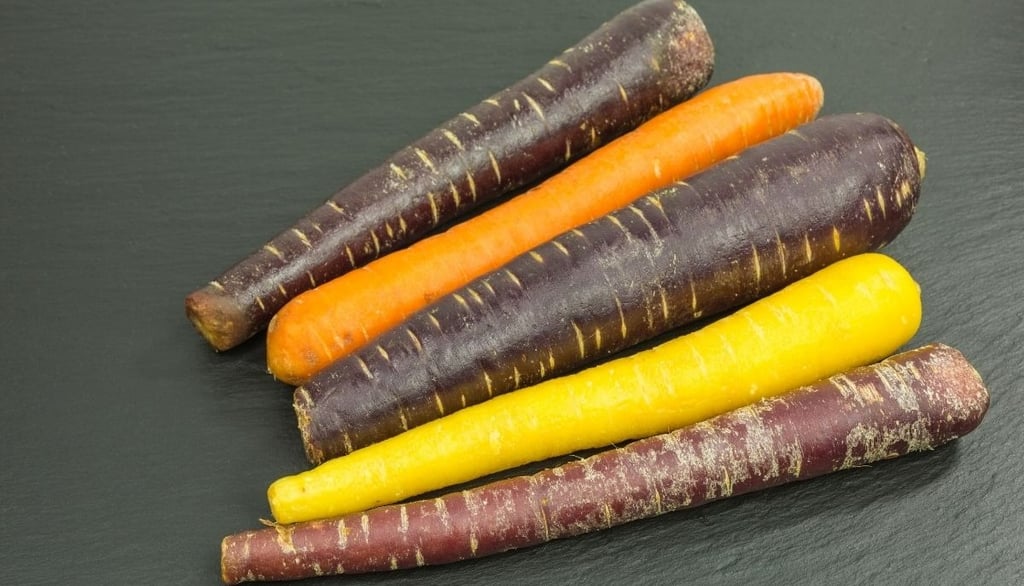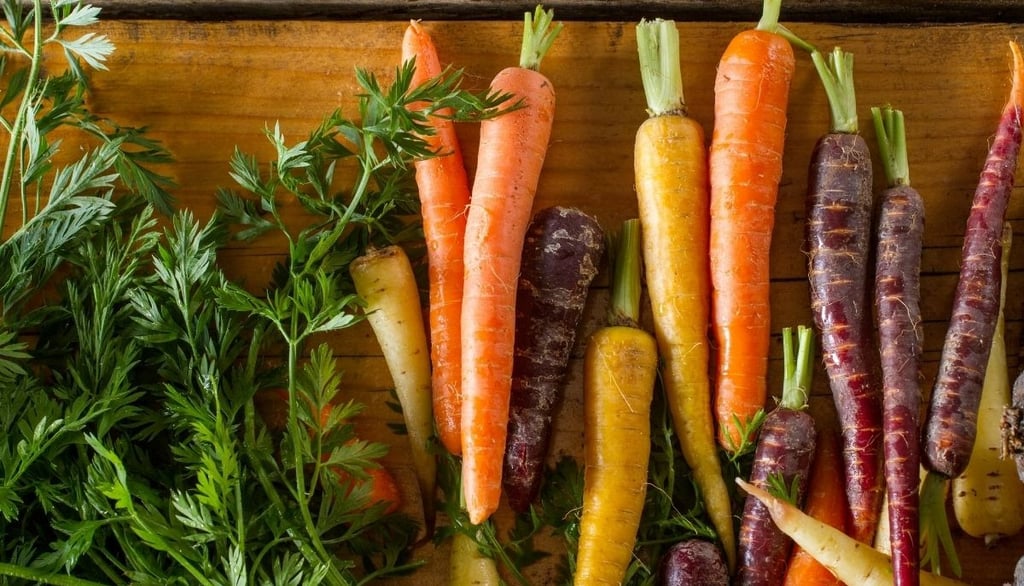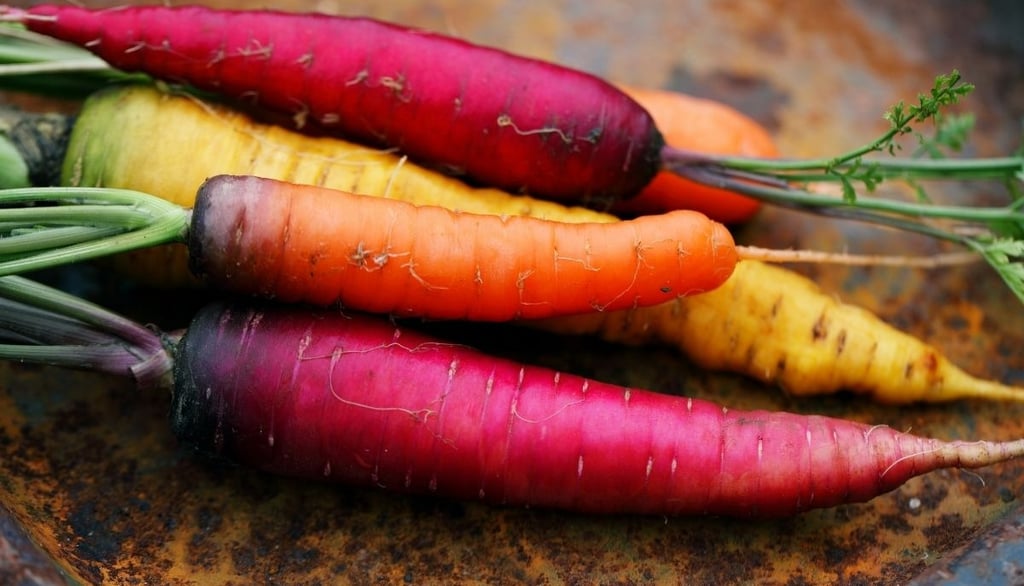Everything About Carrots: History, Global Reach, and Health Benefits
Discover the rich history of carrots, global production leaders, and the surprising health benefits of eating carrots daily. Learn why carrots are a superfood.
12/7/20243 min read


These versatile and vibrant root vegetables, carrots, have captivated human diets for centuries. From their humble beginnings in ancient Persia to their prominence in cuisines worldwide, carrots are celebrated for their rich history, nutritional benefits, and cultural significance. In this comprehensive article, we explore the history of carrots, their top-producing countries, and their undeniable health advantages.
The History of Carrots: From Wild Roots to Cultivated Crops
Carrots' origins go back to ancient Persia, where purple and yellow varieties were first domesticated around 3,000 years ago. Initially grown for their aromatic leaves and seeds, early carrots were prized for their medicinal properties. The modern orange carrot emerged in the 16th century in the Netherlands, bred by Dutch farmers who perfected its sweetness and vibrant color to honor the House of Orange.
Wild carrots, also known as Queen Anne's lace, laid the foundation for today’s cultivated varieties. Over centuries, carrots spread globally, diversifying into various colors, including red, black, and white, each with unique nutritional profiles and flavors.
Which Country Grows the Most Carrots?
China dominates the global carrot market, producing over 17 million tons annually. Its rich soils and agricultural expertise have secured its position as the top producer. Other notable countries include:
Uzbekistan: A key producer in Central Asia with favorable growing conditions.
United States: California leads the U.S., accounting for 85% of national carrot production. States like Michigan and Texas also contribute significantly.
Ukraine: The largest producer in Europe, known for its vast farmlands and domestic consumption.
These nations leverage advanced farming techniques and regional specialties to produce high-quality carrots for global markets.
Read more: Creamy Curry Butternut Squash Soup (Vegan, Gluten-Free)


Where Are the Most Carrot Lovers?
Countries with high carrot consumption include:
France: Known for its culinary appreciation, carrots are a staple in French cooking.
Japan: Carrots are a key ingredient in traditional dishes and juices.
Russia: A heavy consumer due to its reliance on hearty vegetables in cold climates.
In the United States, an average person consumes around 7.6 pounds of carrots annually, highlighting their popularity in salads, snacks, and cooking.
Carrots as a Nutritional Powerhouse
Carrots are a rich source of vital nutrients:
Vitamin A: Boosts vision and immune health.
Beta-carotene: Acts as an antioxidant, promoting skin and cellular health.
Fiber: Supports digestion and maintains gut health.
Potassium: Helps regulate blood pressure.
Per 100 grams, carrots offer approximately 41 calories, 9.6 grams of carbohydrates, and 3 grams of natural sugars, making them an ideal low-calorie snack.
Are Carrots a Superfood?
Yes, carrots qualify as a superfood due to their dense nutritional content and health-promoting compounds. Rich in antioxidants, they combat oxidative stress, lower cholesterol, and reduce the risk of chronic diseases.
What Happens When You Eat Carrots Every Day?
Eating carrots daily supports:
Eye health: Vitamin A enhances vision and prevents night blindness.
Weight management: High fiber content keeps you fuller for longer.
Skin health: Beta-carotene protects against UV damage.
Consuming three carrots a day can significantly boost beta-carotene levels, leading to a radiant complexion and improved overall health.


Raw vs. Cooked Carrots: Which Is Better?
Eating raw carrots preserves their vitamin C and enzymes, beneficial for digestion. However, cooking carrots increases the bioavailability of beta-carotene, making them more effective in delivering vitamin A. Incorporating both forms into your diet maximizes their benefits.
The Role of Carrots in a Healthy Lifestyle
Carrots align perfectly with a balanced diet. Their natural sweetness enhances juices, salads, and desserts, while their nutrient density supports cardiovascular and immune health. Whether roasted, pureed, or juiced, carrots remain a culinary staple across the globe.
Conclusion
From their colorful history to their superfood status, carrots offer a unique blend of nutrition and versatility. By understanding their origins, global significance, and health benefits, we can appreciate the profound impact of this humble root vegetable. So, whether you’re crunching on a raw carrot stick or enjoying a warm bowl of carrot soup, know that you’re nourishing your body with one of nature’s most remarkable gifts.
Get inspired by David Montgomery’s journey and share your unique vegan carrot story today—let’s grow this vibrant community together! Read more here
Pure Vegan Path
Explore plant-based living and delicious recipes.
Contact
Newsletter
info@pureveganpath.com
123-456-7890
© 2024. All rights reserved.
